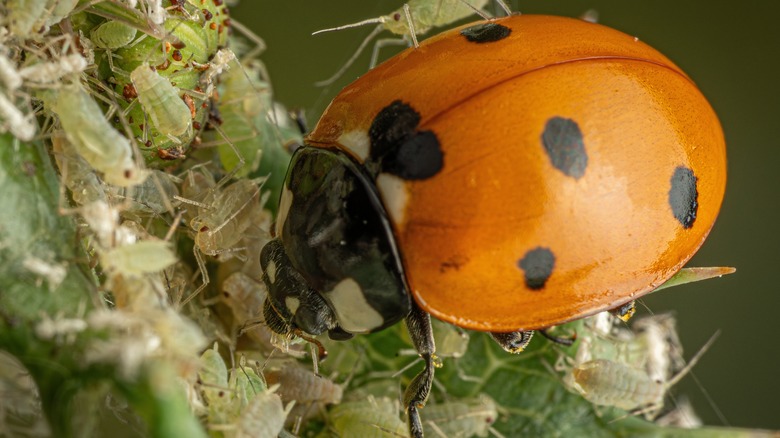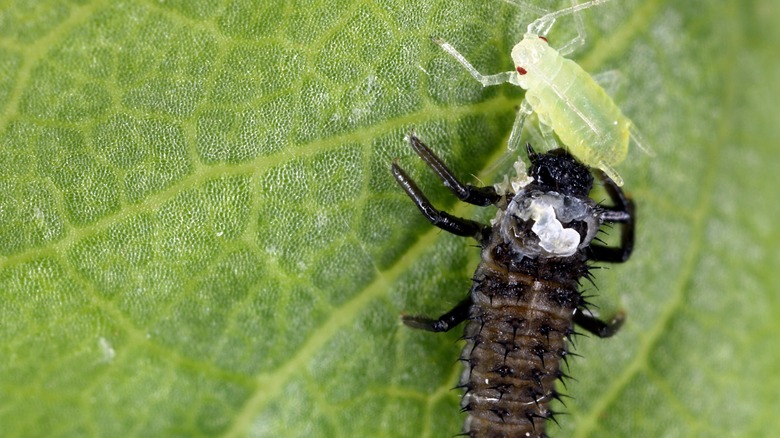The 'Pest' That Can Actually Act As A Natural Pest Control In Your Garden
While it's true that some species of ladybug are considered pests, native species could be called the opposite of pests. Ladybugs (also called ladybeetles since they are actually beetles) are apex predators, meaning they are themselves predators and have no natural predators that eat them. Ladybugs are especially fond of aphids and can be your heroes in an aphid infestation, consuming 25 or more aphids daily for a lifetime total of about 5,000. They also eat other pests that devour plants—mealybugs, mites, ants and leafhoppers—as well as insect eggs and fruit flies. Bonus: Ladybugs are also pollinators!
Of the three species of ladybug that are considered pests, Mexican bean beetle and squash beetle have that reputation because they aren't predators and have a habit of gobbling up crops. The third, the multicolored Asian lady beetle, is an effective predator but tends to congregate indoors in large numbers, seeking warmth— perhaps more of a nuisance than a pest.
Attract ladybugs to your yard to consume pests
You're probably aware that ladybugs are sold to gardeners in large quantities, so you may be wondering if you should buy ladybugs for natural garden pest control. The ladybugs are definitely up for the job, but unfortunately less than 5% of them stick around in the targeted area once released. Questionable legality related to harvesting them without a license also surrounds the ladybug trade.
A big reason not to buy ladybugs is that they are sold as adults, but adults are not the best consumers of aphids; instead, you should consider using ladybug larvae in your garden, as they are the true champions of aphid consumption. They eat 10 times more than adults do! In addition, the packing and shipping conditions under which commercial ladybugs are sold make them unlikely to lay eggs after release, so no larvae are produced.
Instead of buying ladybugs, work on luring ladybugs with, for example, plants that naturally attract ladybugs into your garden. If you attract ladybugs and provide a supportive habitat for them, they will naturally stay around and lay eggs from which voracious larvae (see above photo, as larvae look nothing like adult ladybugs) will emerge. Don't go out of your way to attract them until you actually have aphids, as ladybugs won't stay where they can't find their favorite meal. Providing a diverse garden helps attract them since they also eat pollen and nectar, especially as they prepare for winter hibernation and in early spring before the insects they prey on are plentiful. Limit use of broad-spectrum insecticides, which can harm these insects.

